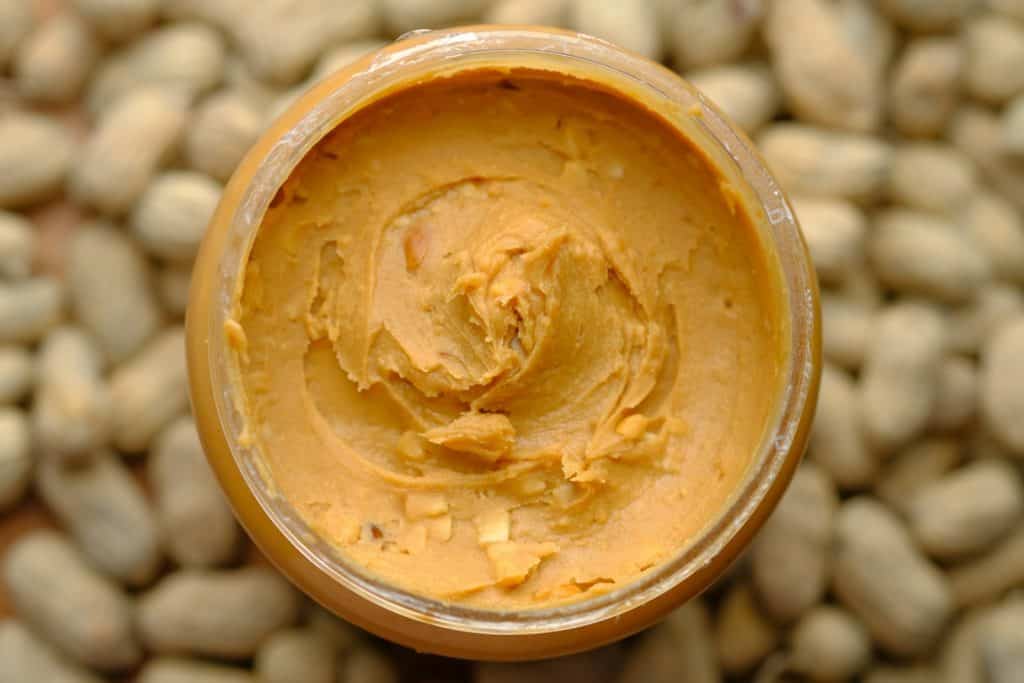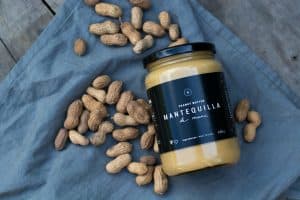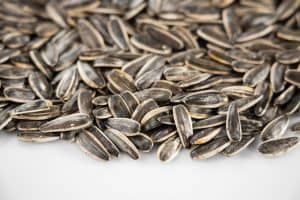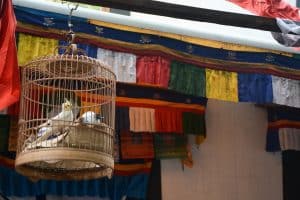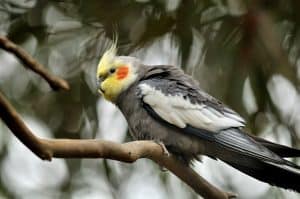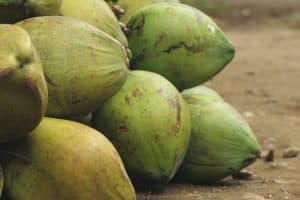Cockatiels are cherished pet birds, celebrated for their friendly and affectionate personalities. Maintaining a balanced diet is essential for their health and longevity. Many pet owners often ask, “Can cockatiels eat peanut butter?” This comprehensive guide will explore the safety of peanut butter for cockatiels and examine other nuts, seeds, and treats that may be suitable for them.
Understanding Cockatiel Diet Requirements
Cockatiels require a well-balanced diet to thrive. A proper diet for cockatiels should include:
- Protein: Essential for growth and repair of tissues.
- Fat: Provides energy, but should be given in moderation.
- Vitamins and Minerals: Vital for overall health and functioning.
- Fresh Fruits and Vegetables: Important for providing necessary vitamins and minerals.
Can Cockatiels Eat Peanut Butter?
The question, “Can cockatiels eat peanut butter?” is common among bird owners. Peanut butter is rich in protein and fats, which can be beneficial. However, there are several factors to consider:
- Sugar Content: Many commercial peanut butters contain high amounts of sugar, which is not healthy for birds.
- Salt: Salt is another concern, as too much can lead to health problems.
- Additives: Many brands add other ingredients that may be harmful to birds.
Factors to Consider Before Feeding Peanut Butter
When thinking about feeding peanut butter to your cockatiel, consider the following:
- Moderation: Peanut butter should be an occasional treat and not a regular part of their diet.
- Type of Peanut Butter: Opt for organic, unsweetened, and unsalted peanut butter to avoid harmful additives.
- Bird’s Health: Older birds or those with health issues may not tolerate peanut butter well.
Safe Alternatives to Peanut Butter
If you’re hesitant about feeding peanut butter to your cockatiel, there are safer alternatives:
- Almond Butter: Similar to peanut butter but often contains fewer additives. Ensure it’s unsalted and free from added sugars.
- Raw Peanuts: Fresh, unsalted, and unshelled peanuts can be a great treat. Avoid giving them in large quantities.
- Sunflower Seeds: A favorite among many birds, but high in fat, so they should be given sparingly.
- Other Nuts: Almonds and other nuts can be offered, but always ensure they are raw and unsalted.
Introducing Peanut Butter to Cockatiels
If you decide to offer peanut butter, follow these steps:
- Start Small: Begin with a tiny amount to see how your bird reacts.
- Monitor: Watch for any signs of allergic reactions or digestive issues.
- Mix with Other Foods: Combine peanut butter with fruits or vegetables to make it less sticky and easier to eat.
Signs of Allergic Reactions or Digestive Issues
Be vigilant for any signs of distress in your cockatiel:
- Vomiting: An indication that something is not agreeing with their system.
- Diarrhea: Can lead to dehydration and other health problems.
- Lethargy: A sign that your bird is not feeling well.
If any of these symptoms occur, stop feeding peanut butter immediately and consult a vet.
Other Considerations for Feeding Nuts and Seeds
When feeding your cockatiel nuts and seeds, consider these points:
- Shelled Peanuts: Always offer unshelled peanuts to prevent choking hazards.
- Ground Peanuts: Can be mixed with other foods for a balanced treat.
- Wild Birds: Avoid feeding wild birds peanut butter or other processed foods as it can be harmful to them.
- Pellet Diet: Ensure the majority of your cockatiel’s diet is made up of high-quality pellets designed for pet birds.
The Importance of a Balanced Diet
Cockatiels, like most birds, thrive on a balanced diet. While treats like peanut butter can be offered occasionally, they should not replace their main diet. A pellet-based diet supplemented with fresh fruits, vegetables, and occasional nuts or seeds is ideal.
Common Foods and Their Impact on Cockatiels
- Bread: Generally not recommended as it lacks nutritional value.
- Meat: Not suitable for cockatiels as they are primarily seed and plant eaters.
- Fish and Eggs: Can be given in very small amounts but are not necessary for their diet.
- Greens: Fresh leafy greens are excellent for cockatiels.
- Fruit: Fresh fruit is a healthy and tasty treat.
Foods to Avoid
Certain foods can be harmful or even toxic to cockatiels:
- Salt: Excessive salt can lead to severe health issues.
- Sugar: High sugar content can cause obesity and other health problems.
- Sticky Foods: Can cause choking or digestive issues.
- Moldy or Spoiled Foods: Can contain harmful fungi and bacteria.
Safe Treats for Cockatiels
Apart from peanut butter, there are many healthy treats you can offer:
- Organic Fruits: Apples, berries, and melons.
- Vegetables: Carrots, spinach, and peas.
- Seeds: In moderation, seeds like sunflower or pumpkin can be a great treat.
Exploring the Nutritional Value of Peanut Butter and Other Nuts
To provide more depth on whether cockatiels can eat peanut butter, it’s important to delve into the nutritional components and how they can impact your bird’s health. Understanding these elements helps in making informed decisions about what is safe and beneficial for your pet birds.
Nutritional Breakdown of Peanut Butter
Peanut butter is made from ground peanuts and contains several nutrients:
- Protein: Essential for muscle development and repair, peanut butter is a rich source of protein. For cockatiels, protein is a crucial part of their diet, but they usually get sufficient protein from their pellet diet.
- Fat: While fats are necessary for energy, too much fat can lead to obesity and other health issues in birds. Peanut butter is high in fat, which can be problematic if fed in large amounts.
- Vitamins and Minerals: Peanut butter contains vitamins E, B3 (niacin), and B6, along with minerals like magnesium, phosphorus, and potassium. These nutrients are beneficial but can be obtained from other, safer sources.
Comparing Peanut Butter with Other Nut Butters
If peanut butter isn’t the best option, what about other nut butters like almond butter? Let’s compare:
- Almond Butter: Generally considered healthier, almond butter has more vitamins and minerals compared to peanut butter. It is also typically lower in sugar and salt when chosen in its pure form.
- Cashew Butter: Another alternative, cashew butter, is creamy and can be a tasty treat. However, it’s also high in fat, so moderation is key.
- Sunflower Seed Butter: A good option, especially if your cockatiel enjoys sunflower seeds. It’s rich in vitamins E and B6 and can be a safer, lower-fat alternative.
When selecting nut butters, always choose unsalted and unsweetened varieties to avoid harmful additives.
The Role of Seeds in a Cockatiel’s Diet
Seeds can be a great treat for cockatiels, but they should not dominate their diet. Here’s a closer look at some common seeds:
- Sunflower Seeds: Highly favored by many birds, sunflower seeds are nutritious but should be given sparingly due to their high-fat content.
- Pumpkin Seeds: Another healthy option, pumpkin seeds are packed with beneficial nutrients and can be a great occasional treat.
- Hemp Seeds: Rich in omega-3 and omega-6 fatty acids, hemp seeds can promote a healthy coat and skin.
While seeds are nutritious, they should complement a balanced diet primarily consisting of pellets and fresh foods.
Safe and Unsafe Foods for Cockatiels
When considering what to feed your cockatiel, it’s crucial to know which foods are safe and which can be harmful:
Safe Foods:
- Fresh Fruits and Vegetables: Apples (without seeds), berries, carrots, and spinach are excellent choices.
- Cooked Grains and Legumes: Brown rice, quinoa, and lentils can be nutritious additions.
- Healthy Nuts: Raw, unsalted almonds and walnuts can be offered in moderation.
Foods to Avoid:
- Chocolate and Caffeine: Highly toxic to birds and should be strictly avoided.
- Avocado: Contains persin, which is toxic to birds.
- Onions and Garlic: Can cause digestive issues and anemia in birds.
- Processed Foods: Avoid giving any food with additives, preservatives, high salt, or sugar content.
Incorporating Treats into Your Cockatiel’s Diet
Treats like peanut butter and nuts should be given sparingly. Here’s how you can incorporate treats effectively:
- Training Rewards: Use small amounts of peanut butter or almond butter as a reward during training sessions.
- Enrichment Activities: Spread a small amount of nut butter inside foraging toys to keep your bird mentally stimulated.
- Balanced Diet: Ensure treats do not make up more than 10% of your cockatiel’s overall diet.
Understanding the Risks of Aflatoxins in Peanuts
Aflatoxins are toxic compounds produced by certain fungi found in peanuts and other crops. These toxins can cause severe health problems in birds, including liver damage and cancer. When choosing peanuts or peanut butter, ensure they are free from mold and sourced from reputable suppliers to minimize the risk of aflatoxin contamination.
Feeding Fresh and Organic Foods
Fresh and organic foods are always the best choice for your cockatiel. Here’s why:
- No Pesticides: Organic foods are grown without harmful pesticides, making them safer for your bird.
- Nutrient-Rich: Fresh foods retain more vitamins and minerals compared to processed or canned options.
- Better Taste: Fresh, organic foods are often more palatable for birds, encouraging them to eat a varied and balanced diet.
Recipes for Homemade Bird Treats
Making homemade treats allows you to control the ingredients and ensure they are healthy for your cockatiel. Here are a couple of simple recipes:
Nut and Seed Mix
Ingredients:
- 1/4 cup raw, unsalted almonds
- 1/4 cup sunflower seeds
- 1/4 cup pumpkin seeds
- 1/4 cup hemp seeds
Instructions:
- Mix all the ingredients in a bowl.
- Store in an airtight container.
- Offer a small amount to your cockatiel as a treat.
Fruit and Veggie Skewers
Ingredients:
- Apple slices (without seeds)
- Carrot sticks
- Bell pepper pieces
- Spinach leaves
Instructions:
- Thread the fruit and veggie pieces onto a skewer.
- Hang the skewer in your cockatiel’s cage for them to enjoy.
In conclusion, while peanut butter can be offered to cockatiels as an occasional treat, it’s essential to choose the right type and offer it in moderation. Ensuring your pet bird has a balanced diet is key to their health and happiness. Always monitor for any adverse reactions and consult with a vet if you have any concerns about their diet.
By providing a variety of healthy foods and treats, you can ensure your cockatiel enjoys a long, happy, and healthy life.
Other suggested articles:
How to Train a Cockatiel to Fly to You? 8 Steps
